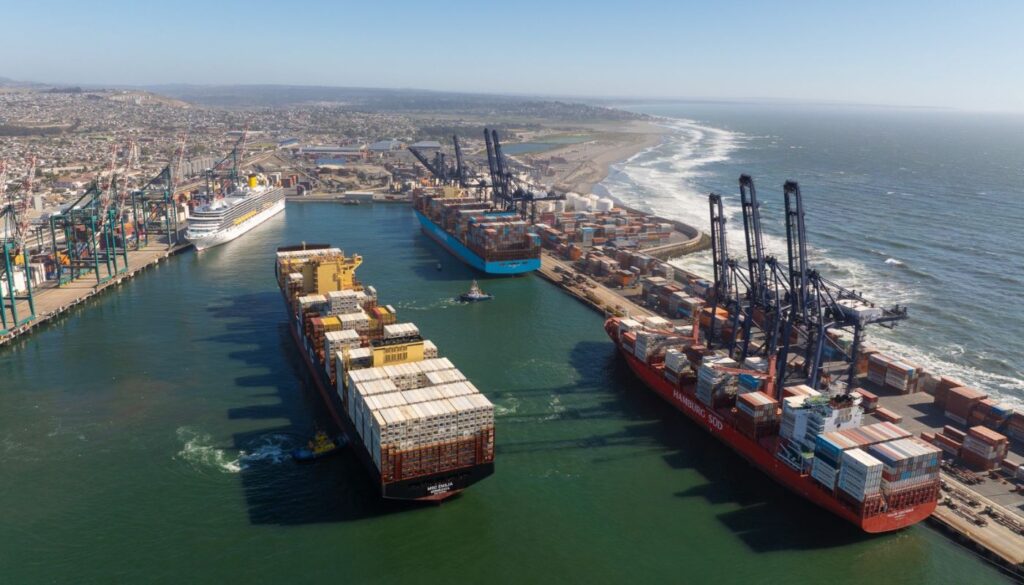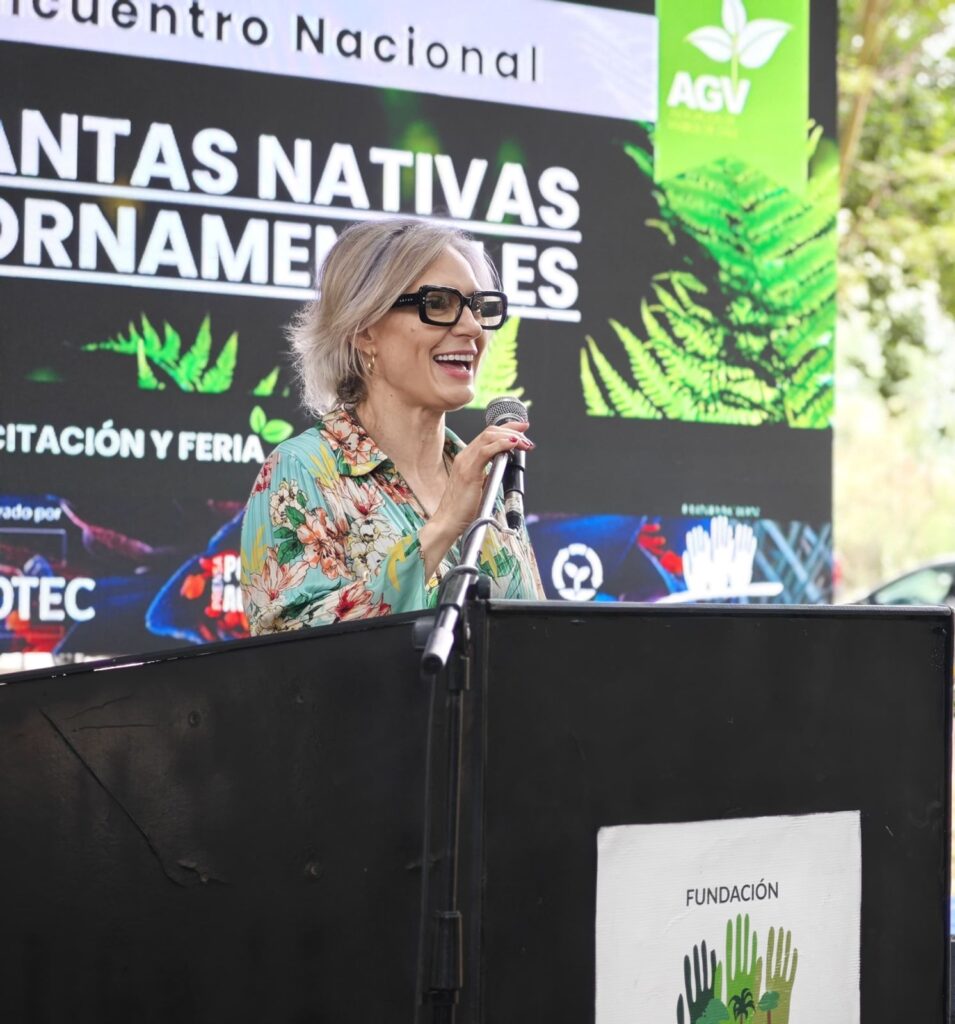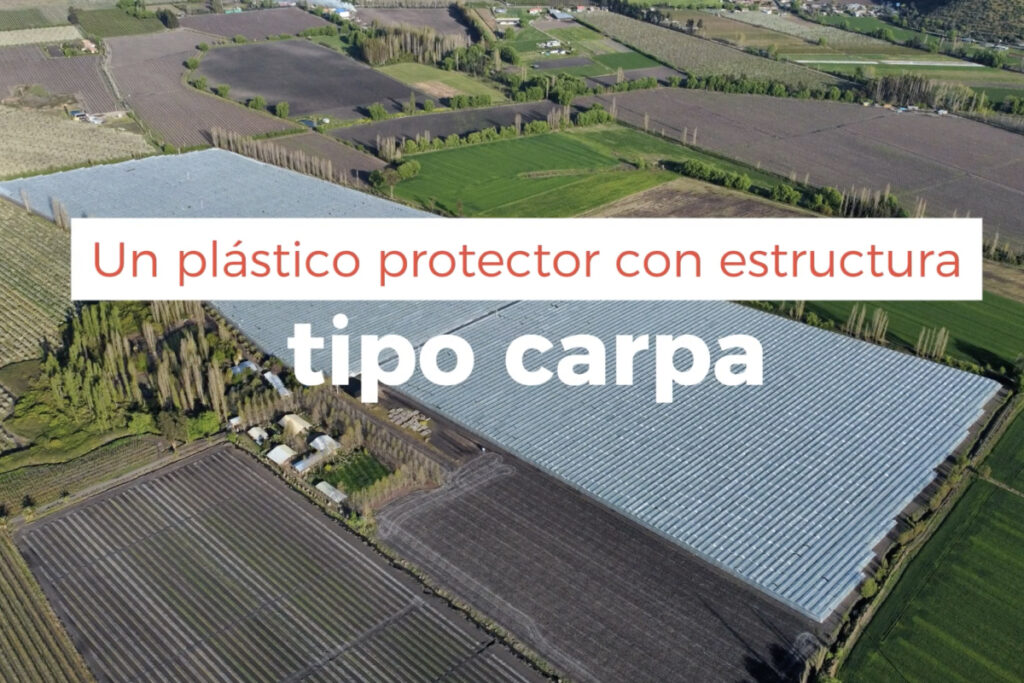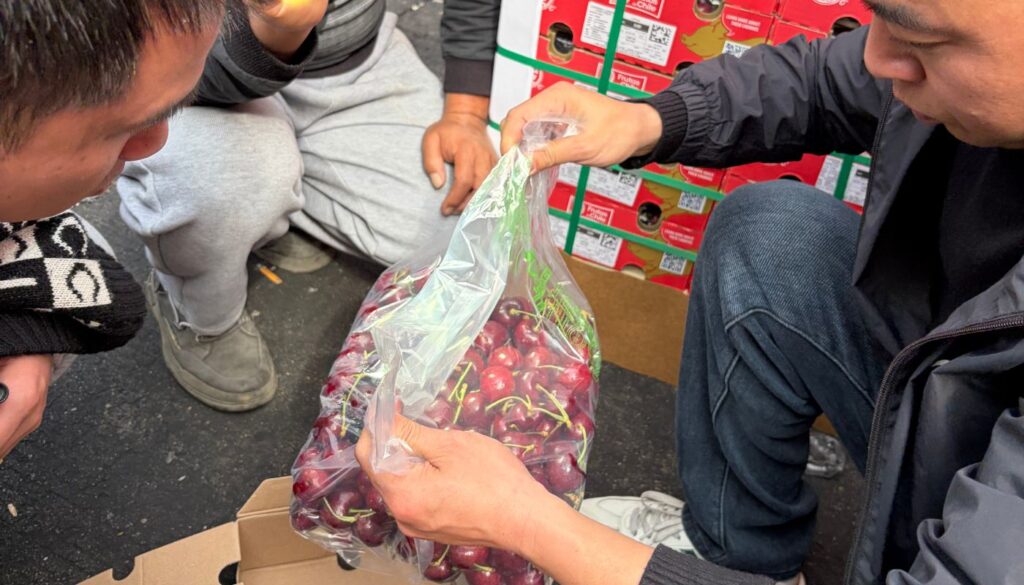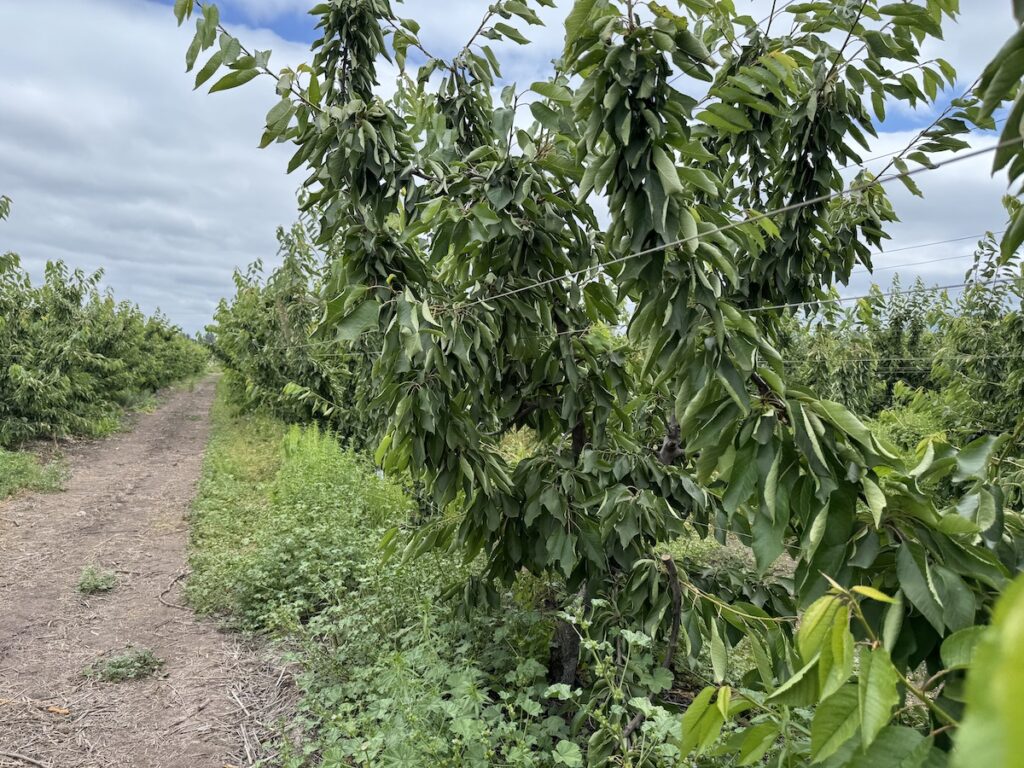OLIVOS irrigation recommends carrying out the corresponding surveys of the irrigation systems during the post-harvest or prior to the last irrigations, in order to detect possible faults in advance and carry out repairs in time, in view of a new irrigation season.

Cherry production specialists recommend that irrigation of cherry orchards should be suspended by March 31; in sandy soils with less moisture retention, the deadline is extended to April 10 at the latest. This is the first cultural signal sent to the plants for a correct entry into dormancy.
After this, the importance of having an optimal irrigation system for the following season often takes a backseat, and only becomes important again in September.
In this context, OLIVOS irrigation offers a preventive program of inspections and maintenance, in order to avoid problems that could affect production, due to the global scenario we face in terms of logistics and availability of labor.
“We decided to promote the advancement of maintenance and/or repairs on site, since we are not experiencing a scenario equal or similar to that of previous years, years in which we could afford to postpone or delay these services, for the simple fact that long response times would not be compromised; what used to be just a headache to have a failure in the middle of the season, now leads us to a critical situation, putting our production in jeopardy,” explains Manuel Prieto, Head of the After-Sales and Maintenance Department at OLIVOS Riego.
“Having said that, today more than ever it is extremely important to anticipate events, taking immediate measures when it comes to the state of our equipment, avoiding exposing ourselves to risks that could end in serious consequences for the orchards.”, Prieto added.
OLIVOS Irrigation offers a complete program of inspection and maintenance of irrigation systems; normally, evaluations arise due to a specific failure or inconvenience, however, it is always recommended to carry out a general inspection.

“They tell us, for example, 'I have flow problems, I have pressure problems'; we address them, we take them from that point, but what we recommend, rather than taking those particular aspects, is to make a complete record of the equipment. At OLIVOS Irrigation we go from the suction to the last emitter, supported by the calculation memory of the projects, which allows us to compare the current state of the system with the design state. Normally, we carry out zero flow tests, review of the inlet and outlet pressures of the filtering equipment, the status of the programmers, that the signals in the field are working optimally, etc. In order to avoid having to resort to, among others, manual openings or closings that require a significant amount of man hours.”, details from OLIVOS Riego.
It is very important to work taking into account the calculation memory, that is, the indicator of how the equipment should be working. In this way, it is possible to leave everything in optimal conditions for a correct distribution and frequency of irrigation in the following season.
“How do we do it? Step one, we visit the field and make a record or assessment; step two, a quote is sent to the client detailing the recommendations, whether to change or repair and improvements to the system; step three, approval by the client and coordination of the visit; and step 4, monitoring and traceability of the equipment.”, explains Manuel Prieto, Head of the After-Sales and Maintenance Department at OLIVOS Riego.
Why is it so important to have an optimal irrigation system?

A significant number of cherry production consultants agree that 60 percent of production is reflected in good irrigation; and this not only has to do with the amount or time of irrigation, but also with its distribution and frequency. Even more important is to have an adequate system, due to the mega drought that has been experienced for more than a year.
decade in a significant part of the country.
“Given the high temperatures, lack of rain and the water situation we are experiencing, it is essential for us to have equipment working at its optimal point. Achieving efficient use of water has become a first-class need, and it is something we have very much in mind at OLIVOS, even turning it into our epic, “Radically Challenging Water Availability.” If our equipment is not working correctly, whether due to problems with our pumps, filters, lines, etc., there could be variations in the pressures or flows of the system, which will result in us not delivering and/or distributing water or fertilizer in the way we believe or want to the plant. Unfortunately, a large percentage of agricultural companies do not have the technology or methodology that allows them to measure and keep a real record of what they are delivering to the plant through their irrigation systems, staying calm when they see that the lines or sprinklers are “spilling water.” Taking care of maintaining irrigation systems with their maintenance up to date, and having adequate technology, will not only help us contribute to the efficient use of water, but will also lead us to see better results in our productions”, points out the Head of the After-Sales and Maintenance Department of OLIVOS Riego.
Proper maintenance of irrigation equipment could also impact the durability of the systems themselves, which has a long-term economic benefit.
“It often happens that most of the resources and interests are allocated to the year 0 of the projects, leaving aside or forgetting the importance of maintaining and allocating these same factors to the following years. What will allow us to give longevity to the project is to have an adequate maintenance system, and that is why, at OLIVOS, we invite you to acquire this annual maintenance, evaluation and traceability service for your equipment. In conversations with our clients, we have made some calculations which have made the value of investing in these annual maintenances transparent to us. Although it is true that the initial investments are high in this type of project, it does not mean that we can rest easy in what lies ahead, since these projects can last even more than 20 years. Having these services allows us to make our projects profitable, avoiding replacements which mean an investment far above that of maintenance. At OLIVOS, we are very pleased to receive the trust of our clients when acquiring these services, allowing us to contribute to their projects, give them peace of mind about their equipment so they can fully dedicate themselves to production and, lastly, contribute to the efficient use of water.”, concludes Manuel Prieto, Head of the After-Sales and Maintenance Department at OLIVOS Riego.



